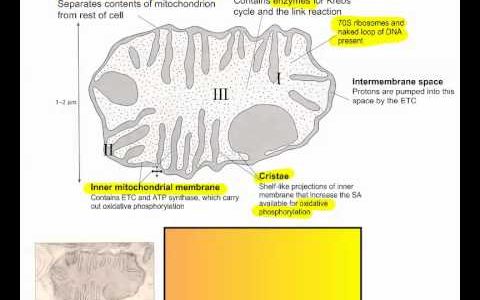Feeling foggy and groggy every morning, even after coffee? There’s a scientific reason why sleep apnea causes this pesky AM fog. In this video, learn what’s really going on in your brain and body overnight and why your a.m. mug isn’t helping. Discover a simple trick to start waking up feeling refreshed (no, it’s not more sleep meds or caffeine!).
Timestamp Summary:
00:34 – Sleep washes out adenosine, which builds up from mitochondrial ATP production during sleep.
01:34 – Adenosine buildup makes you sleepy, but your brain needs to clear it out.
03:04 – Not clearing adenosine causes morning grogginess. Caffeine temporarily blocks adenosine receptors.
04:55 – Your body responds by making more adenosine receptors, so coffee stops working.
06:17 – Sleep resets neurotransmitters like dopamine and serotonin. Poor sleep means inadequate levels the next day.
07:22 – Sleep also resets cortisol levels, which doesn’t happen properly with poor sleep.
08:53 – Toxins and metabolic waste build up and need clearing out during sleep. Poor sleep allows buildup.
09:27 – Accumulation causes neuronal dysfunction the next morning.
10:30 – Mitochondria play a key role in these cellular processes during sleep.
11:38 – Caffeine disrupts adenosine, cortisol, and mitochondrial function.
12:50 – Delay caffeine until later in the morning to allow natural wake processes.
13:42 – It may feel worse at first but leads to improved sleep and mornings.
14:26 – Be consistent with later caffeine timing to support natural sleep/wake cycles.
Brief Summary:
Before you grab that third, fourth or fifth cup of coffee today, we need to talk about why you’re so foggy and groggy with sleep apnea every morning.
If we don’t understand what’s really going on, it becomes an unhealthy cycle of feeling more drained and wired. Let me explain exactly why it happens so you can approach it differently.
During sleep, your mitochondria – the powerhouses in your cells – produce energy to fuel restorative processes. This energy comes from converting adenosine triphosphate (ATP) to adenosine diphosphate (ADP). The adenosine builds up and makes you feel sleepy.
But your brain needs to clear out the adenosine buildup. When you have poor sleep, it can’t properly “wash out” all that adenosine. So those molecules are still floating around your brain in the morning, making you feel tired no matter how much coffee you drink!
Coffee only temporarily blocks adenosine receptors, so your body responds by making more receptors. That’s why it stops working.
Sleep also resets important neurotransmitters like dopamine, serotonin and cortisol. With poor sleep, you start the day with inadequate levels, making your brain feel sluggish.
And your cortisol levels don’t properly reset, further contributing to morning grogginess.
On top of that, toxins and metabolic waste build up daily and need clearing out during sleep. Poor sleep allows accumulation, causing neuronal dysfunction the next morning.
The common thread? Mitochondria play a key role in these cellular restorative processes during sleep. Yet caffeine disrupts mitochondrial function along with adenosine and cortisol balance.
The solution is simpler than you may think. Delay that first cup of coffee until later in the morning – say, 9-10am instead of 6-7am. Let your natural wake up processes work before you artificially stimulate them.
It may feel worse at first. But within a few days, you’ll notice improved sleep quality at night and less morning fog.
Be consistent with the later coffee timing to support your natural sleep/wake cycles. Over time, you’ll wake up feeling more refreshed and energized without relying on excessive caffeine!
Let me know if you have any other questions! Hoping this helps you start your day feeling bright and focused.
References:
Reichert CF, Deboer T, Landolt HP. Adenosine, caffeine, and sleep-wake regulation: state of the science and perspectives. J Sleep Res. 2022 Aug;31(4):e13597. doi: 10.1111/jsr.13597. Epub 2022 May 16. PMID: 35575450; PMCID: PMC9541543.
Lovallo WR, Whitsett TL, al’Absi M, Sung BH, Vincent AS, Wilson MF. Caffeine stimulation of cortisol secretion across the waking hours in relation to caffeine intake levels. Psychosom Med. 2005 Sep-Oct;67(5):734-9. doi: 10.1097/01.psy.0000181270.20036.06. PMID: 16204431; PMCID: PMC2257922.
Butler MP, Thosar SS, Smales C, DeYoung PN, Wu H, Hussain MV, Morimoto M, Hu K, Scheer FAJL, Shea SA. Effects of obstructive sleep apnea on endogenous circadian rhythms assessed during relaxed wakefulness; an exploratory analysis. Chronobiol Int. 2020 Jun;37(6):856-866. doi: 10.1080/07420528.2020.1740723. Epub 2020 Mar 20.
______________________________________________
The information contained herein and is NOT intended as, and shall not be understood or construed as, medical or health advice. The information provided is for educational and informational purposes only.
______________________________________________
source


